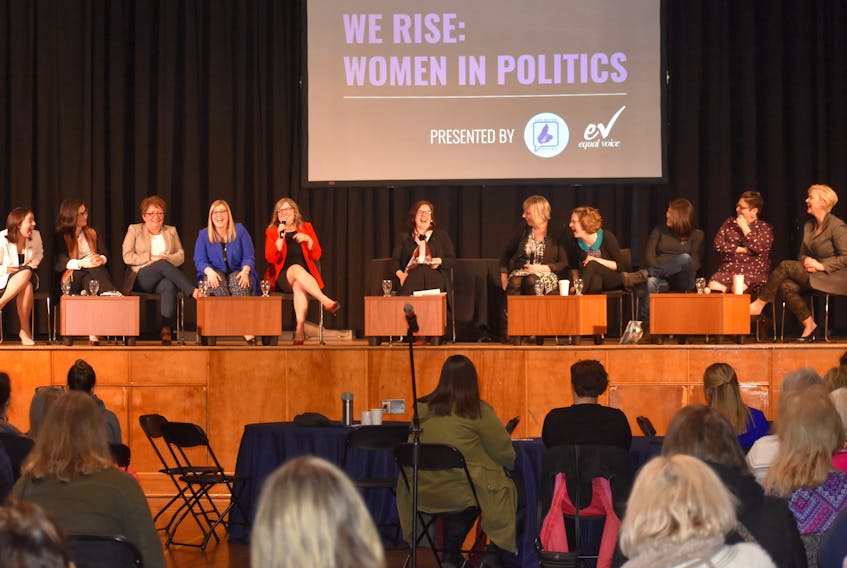The odds of a male candidate for elected office being asked about his hairstyle, age, weight or marital status are remote. Not so for women. Such personal and blatantly sexist questions are far too common; and it’s one of the reasons why it’s difficult to attract women as candidates. Politics has been an uphill fight for women, despite accounting for 50 .5 per cent of the nation’s population.
Susan Holt, a candidate in the current New Brunswick provincial election, summed it up nicely. “I think the political environment, generally speaking, is unattractive. It's full of insults, negativity, confrontation . . .” This kind of political game is not one many women want to play.
To their credit, the four main N.B. parties made a concerted effort to attract and nominate more women, setting a goal of 50 per cent female candidates. They agreed that the low number of women in the last N.B. legislature was embarrassing – 7 of 49, or a mere 14 per cent.
Two N.B. parties were actually successful – the NDP and Greens – at reaching or surpassing the 50 per cent target. And one never knows about upsets. Remember the 2011 Orange Wave in Quebec when Jack Layton’s NDP swept across the province to collect 58 seats in the federal election, helping him become the Official Opposition. Many of those Quebec seats were won by women.
Credit should also go to the N.B. Liberals who almost reached 40 per cent women candidates - the highest level ever by the party - and the Progressive Conservatives who hit almost 30 per cent. Liberal Premier Brian Gallant says his party got to 50 per cent in ridings without incumbent candidates but it will take time to get to that overall target.
Other Atlantic provinces are well-advised to follow New Brunswick’s lead. In the current Newfoundland and Labrador House of Assembly, 10 of 40 members are women (25 per cent); in P.E.I., five of 27 MLAs are women (20 per cent); while Nova Scotia showed an improvement in last year’s election when 17 of 51 women were elected (33 per cent). These are disappointing statistics.
Despite the N.S. improvement, Joanne Bernard, minister for the status of women - who lost her seat - had some sobering parting comments. She won’t miss the challenges as a female politician; "everything from misogyny and homophobia and fat shaming . . . bullying . . . the death threats . . ."
Women in politics received a major boost when Prime Minister Justin Trudeau made a point of naming 50 per cent of his cabinet women in 2015. The PM’s decision to appoint women to key leadership positions sets a powerful example. More women must step forward and take their rightful place in provincial and national legislatures.
In New Brunswick, 93 of 241 candidates in the 49 ridings are women, or 38.5 per cent. It will be interesting to see how many women win seats Sept. 24 and if this new emphasis on gender equality actually pays dividends.









